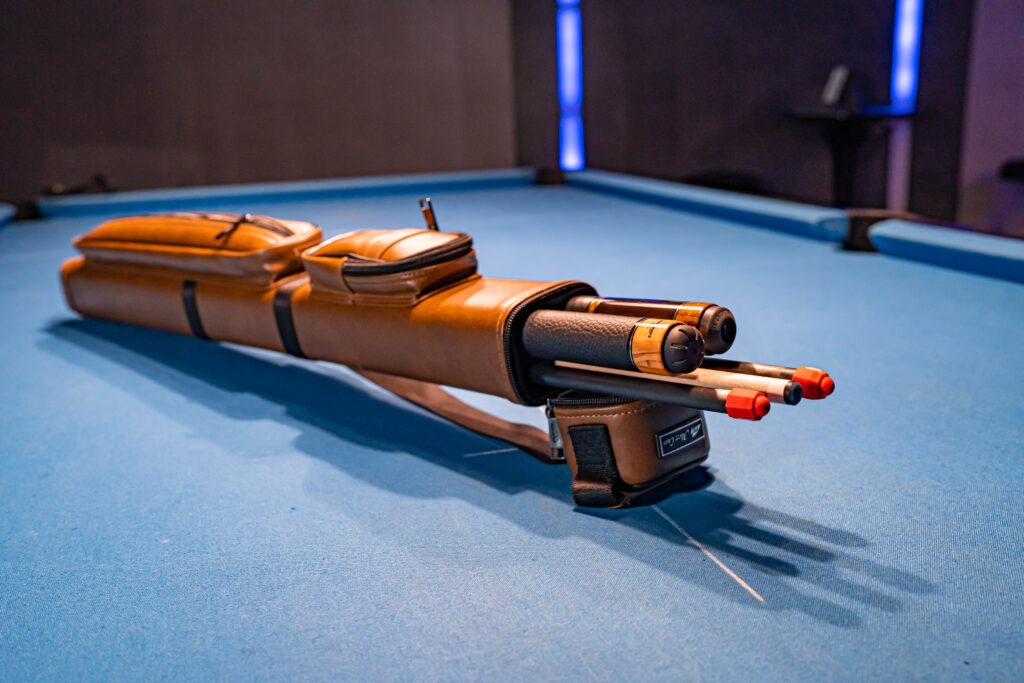
Mezz 2x3 Cue case with Longoni Niels Feijen TJB Jump/Break Cue and Pool Cue Longoni Niels Feijen Sparkle

Mezz 2x3 Cue case with Longoni Niels Feijen TJB Jump/Break Cue and Pool Cue Longoni Niels Feijen Sparkle
In the realm of billiards, protecting your equipment is paramount. Pool cue cases serve as the frontline defense for cues, safeguarding them from damage, moisture, and the rigors of transportation. From soft cases to hard cases, each type offers distinct advantages and disadvantages, catering to the diverse needs and preferences of players. Let’s delve into the world of pool cue cases, exploring the various types, materials, and levels of protection they provide.
Soft Cases: Soft cases, often made from fabric or leather, offer lightweight and compact storage solutions for pool cues.
Advantages
Disadvantages
Vulnerability to Moisture: Fabric-based soft cases may not offer sufficient moisture resistance, potentially exposing cues to damage in wet conditions.
Hard Cases: Hard cases, constructed from durable materials such as ABS plastic or aluminum, provide maximum protection for pool cues.
Advantages
Disadvantages
The level of protection offered by pool cue cases varies depending on the type and materials used. Soft cases provide basic protection against scratches, dust, and minor impacts, making them suitable for casual players or those who prioritize portability and convenience.
In contrast, hard cases offer superior protection against a wider range of hazards, including impacts, compression, moisture, and temperature fluctuations. They provide a secure and stable environment for cues, ensuring they remain in pristine condition even under challenging conditions.
Ultimately, the choice between soft and hard cases depends on individual preferences, playing style, and the level of protection required. Whether seeking lightweight portability or maximum durability, there is a pool cue case to suit every player’s needs, providing peace of mind and preserving the integrity of their valuable equipment.
